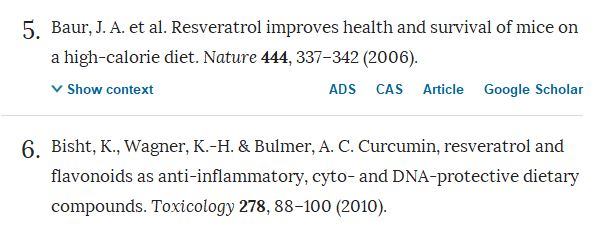If a plant can have a leaf cut off and have it grow back the next day, why not assume eating it will help humans? Because we know more science now than 18th century soldiers did.
But once a supplement takes off, more studies showing magical benefits will be soon to follow, and Nature Communications is helping get things going - perhaps because the credit card cleared. It certainly can't have gone through real peer review.
You might as well stop reading now if you think that any plant will actually help you live longer. It won't. But a realistic goal is to "square the curve" that we have in aging now. Currently, you can live the most healthy lifestyle imaginable and at 80 you will probably still the decline into infirmity. Age is the biggest risk factor for most diseases, more important than smoking, obesity, diet soda, or whatever. Squaring the curve would mean being a little lucky (no accidents, murder, incurable cancer) and then hitting a hundred or so living a pretty good life and then your decline would be more like a cliff than a 20 year curve.

Why do American supplement buyers love Asian folk medicine so much? More worrisome, why do scholars in Europe claim anecdotes as supporting documentation? Source
Science is all about finding things that work and some scientists will shamelessly promote incremental papers. But science media should be about defusing hype, not manufacturing it, as is being done about the flavonoid 4,4′-dimethoxychalcone (DMC) in ashitaba. It did extend longevity - in fruit flies and roundworms. And it had a benefit in human cell cultures. It's fine for a study but it is too narrow to be worth media coverage. In fact, those two sentences are why these kinds of studies should have a giant red EXPLORATORY watermark on every page, to keep journalists from hyping this stuff. Getting it media attention will lead to Dr. Oz or Mark Hyman or any of the Four Horsemen of the Alternative selling this as a supplement. It won't help, fruit flies are not little people, your organs will not regenerate. If cell culture results mattered, we'd have cured cancer 10,000 times by now.
But American supplement salespeople know their market, and they know their customers love anything that comes from Asia. Samurai ingested this, they will be told, and they are ready to believe that Japanese soldiers from a few hundred years ago were smarter than doctors and researchers in the world home for science.
The paper touting this is not just putting up results and then media are running with it, the authors are deceptive on a fundamental level. They claim "a few efficient dietary or pharmacological anti-ageing interventions exist" when in fact there are none. Caloric restriction has only worked in mice, and only in mice that were weaned on a starvation diet. Who wants to be the parent weaning their baby on a starvation diet? They also claim resveratrol works, which has long been debunked.

But they don't really need evidence when they can wash away their claims with "epidemiological studies suggest" and espouse any cosmic belief they desire - they can say it isn't them making the claim, just their hand-picked references do it.
You can save your money.
There is nothing inherently wrong with the statistical methods themselves. They can claim a p value under .05 without shame. But what does it mean? Not much. If I ask you to analyze how much weight the table in your dining room can hold and you run a mechanical engineering analysis on one corner and use an incredibly fine mesh, you might get an absolutely accurate answer for that corner. It will also be completely wrong for the table.



Comments